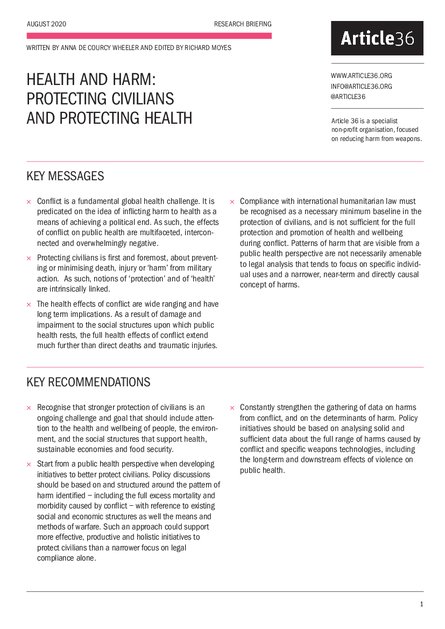
KEY MESSAGES
- Conflict is a fundamental global health challenge. It is predicated on the idea of inflicting harm to health as a means of achieving a political end. As such, the effects of conflict on public health are multifaceted, interconnected and overwhelmingly negative.
- Protecting civilians is first and foremost, about preventing or minimising death, injury or ‘harm’ from military action. As such, notions of ‘protection’ and of ‘health’ are intrinsically linked.
- The health effects of conflict are wide ranging and have long term implications. As a result of damage and impairment to the social structures upon which public health rests, the full health effects of conflict extend much further than direct deaths and traumatic injuries.
- Compliance with international humanitarian law must be recognised as a necessary minimum baseline in the protection of civilians, and is not sufficient for the full protection and promotion of health and wellbeing during conflict. Patterns of harm that are visible from a public health perspective are not necessarily amenable to legal analysis that tends to focus on specific individual uses and a narrower, near-term and directly causal concept of harms.